'The Fact That I Have HIV Is Not Because Of What I Did - It's Because Of What I Didn't Do'
Angelina was diagnosed with HIV when she was 24. This is her story…
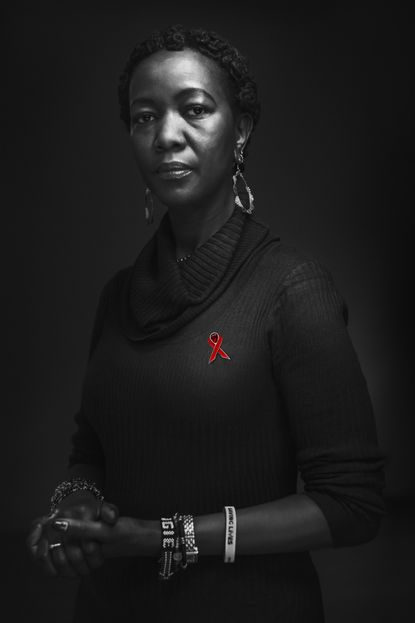
Angelina was diagnosed with HIV when she was 24. This is her story…
‘My HIV diagnosis was very traumatic. All I’d seen around HIV was a massive media campaign with a tombstone. [In it, a voiceover says, ‘It is a deadly disease and there is no known cure’], and all I could think about were the celebrities, like Freddie Mercury, who I knew had died from AIDS. Even worse, my brother had been diagnosed with it a few years earlier, and died about a year after telling our family about it. He’d spent the last year of his life in and out of hospices - all the doctors could do for him was provide palliative care. It took me a long time to say anything. Then out of the blue, a friend told me she was HIV positive too. I just thought, ‘Oh, thank God’ - not because she was sick, but because up until that point, I hadn’t felt like there was anybody I could open up to. I immediately told her that I was positive too, and she took me along to a support group where I met another five or so women living with the disease. One was a mum, the other one was working - they were just leading regular lives. Accessing that kind of support so early on is what gave me the drive to carry on living. That said, I couldn’t bring myself tell my mum about my diagnosis until a few years later over the phone. She sadly passed away in May, but at the time she just said, ‘You know, I wish I was near you to give you a hug.’ Her words were so encouraging, and she made it a little bit easier to tell the rest of my family. These days I’ve reached a stage where if I can tell somebody I’m HIV positive and they don’t like it, that’s okay. This virus doesn’t define who I am. And neither do their reactions. Unfortunately, even though it’s been 30 years since the epidemic began, there’s still a huge stigma around HIV in society. These days, we have excellent treatments that enable us to live well, that ensure we don’t pass the virus on to other people, and that enable us to have HIV negative babies. We could lead totally regular lives – if it wasn’t for other people’s fear.
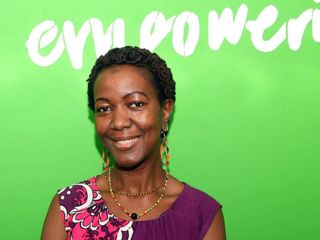
When I was younger, I had to take a cocktail of 20 or 30 pills a day, some of which had lots of horrible side effects and used to really affect my quality of life. Thankfully these days it’s not so bad - I take three tablets once a day. But I wish everybody was this lucky - effective treatment for HIV should be available and affordable for everybody who needs it, no matter where in the world they live. After all, I know first-hand how important it is. It’s what enabled me to have my HIV-negative daughter. People still ask me ‘how I got’ HIV, almost assuming that I must have done something wrong. But HIV doesn’t discriminate, no matter whether you’re rich or poor, young or old, black or white, you name it. The fact that I have HIV is not because of what I did, it’s because of what I didn’t do. And what I didn’t do is what millions of young people are not doing in this world today – they’re not using a condom. Of course, being diagnosed with HIV can be devastating. But the first thing you need to know is that you’re not alone. With access to treatment, care and support, things will be okay. If you want to fall in love, you can. If you want to start a family you can do that too. Life will carry on, just like anybody else’s. And you will be okay.’ December 1st is World AIDS Day. Find out more about the National AIDS Trust’s campaign to Rethink HIV at worldaidsday.org
Marie Claire Newsletter
Celebrity news, beauty, fashion advice, and fascinating features, delivered straight to your inbox!
The leading destination for fashion, beauty, shopping and finger-on-the-pulse views on the latest issues. Marie Claire's travel content helps you delight in discovering new destinations around the globe, offering a unique – and sometimes unchartered – travel experience. From new hotel openings to the destinations tipped to take over our travel calendars, this iconic name has it covered.
-
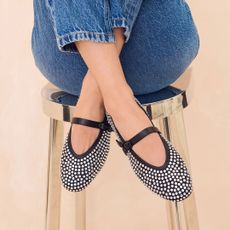 Quick – the whole fashion team is adding these £36 crystal ballet flats to basket
Quick – the whole fashion team is adding these £36 crystal ballet flats to basketShining, shimmering, splendid
By Natalie Hughes
-
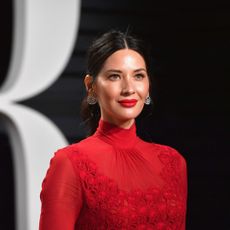 Olivia Munn opens up about her medically-induced menopause following breast cancer diagnosis
Olivia Munn opens up about her medically-induced menopause following breast cancer diagnosis"I figured, as a woman, I can't escape menopause. So I'd rather just take it on now."
By Jadie Troy-Pryde
-
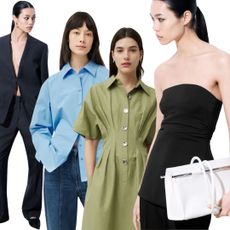 16 pieces of spring workwear from COS, Aligne and Jigsaw that are genuinely worth the investment
16 pieces of spring workwear from COS, Aligne and Jigsaw that are genuinely worth the investmentNail your spring workwear wardrobe with minimal effort
By Valeza Bakolli